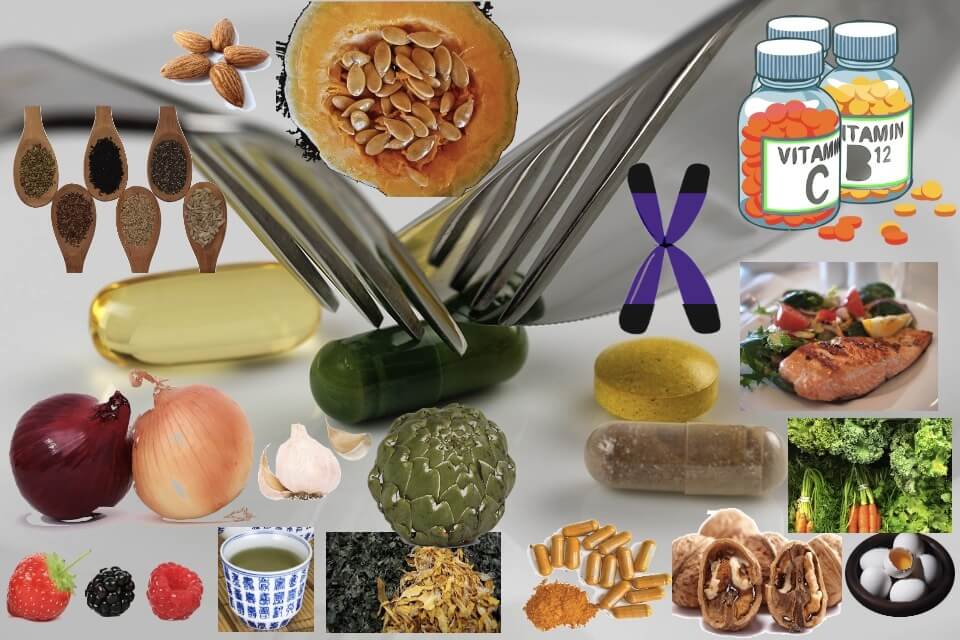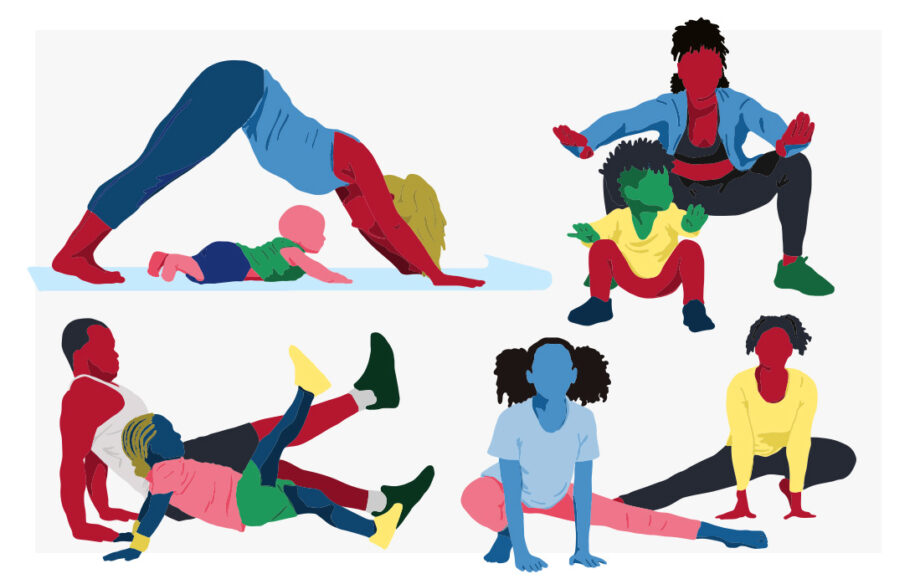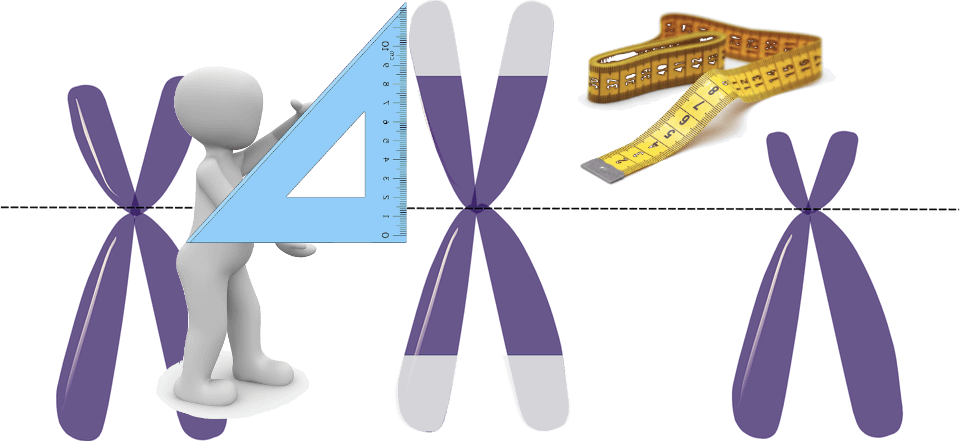The Short Answer To Aging: Lengthen Your Telomeres
As the precious years of our youth slowly pass away, it is widely understood and accepted that aging will inevitably afflict the virtuosity of our state of well-being sooner or later. Now, with that said and that known, there are several previously written articles posted here on this site that offer tips for focusing on a multitude of various methods to sustain or regain a better quality of life as it pertains to wellness.
Though, more often than not, these concerns are not as foremost in our younger years as when we reach a certain age, I think it’s safe to say they will be, sooner or later, as the years pass.
So, I would ask this question, wouldn’t it be good to know if there was one goal you could attain for your overall health that would address most common degenerative signs of aging? Furthermore, where do we look to find this proverbial “holy grail” of youthfulness or at least a more youthful variant of what we once were in our younger years and stave off or reverse the degenerative issues of ageing that accumulate over time?
Being able to identify that one specific biological marker that could help you confront all (or at least most) of the wellness issues that come with age would be a great find, I would submit. The answer to achieving the means to these ends (at least for the most part) may be in these three words “lengthen your telemeres.”
What are Telemeres and Why Are They Important?
Telemeres are portions of DNA that are essentially tips (or caps if you will) on the ends of a chromosome. In scientific adademia, these caps are likened to the plastic tips that hold shoelaces together. Telemeres provide a buffer from the chromosome entangling with other chromosomes. As time goes on, the reproduction of cells manifest a recession or shortening of these caps at the ends of the chromosome. When this occurs, the genetic data needed to reproduce new cells is convoluted or destroyed over time due to this diminishing cycle.
On average, a cell divides somewhere between 50 to 70 times over it’s lifespan before it dies. This process of telemeres shortening during this span is referred to as the hayflick limit. When the cell reaches the tipping point in the cycle where it can no longer reproduce, this is known as senescence. As a consequence, this deterioration or absence of telemeres can even trigger cellular suicide, also called apoptosis.
This is prime catalyst for symptoms of ageing and and declining health. In short, the rate in which telemeres become shorter will quite simply put one at a higher risk for mortality.
Video – Telemeres 101:
Researched Studies And Scientific Testimony
There is mounting evidence in recent years linking telomere length with disease and age related problems in the circles of scientific research.
In one such study in 2012, led by Catherine Schaefer, director of the Kaiser Permanente research program on genes, environment and health, based in Oakland, California, over 100’000 volunteers provided saliva samples to be reviewed and analyzed. The results indicated that, even after adjusting to lifestyle based factors such as the effects of smoking and alcohol consumption, there seemed to be an increased risk in mortality associated with a shorter than average telomere length. Schaefer quotes: “We found that individuals whose telomeres were in the shortest 10 percent were about 23 percent more likely to die in the three years following measurement of their telomeres, when compared with individuals whose telomeres were longer.”
A strange revelation in the study showed that the participants that were heavier had longer telemeres. “The higher the body mass index, the longer the person’s telomeres. This was true for both men and women and for all age groups. Other studies have reported that obesity was associated with shorter telomeres,” Schaefer said. Education demonstrated a longer length in telomeres where as, smoking and drinking showed a shorter telomere length. The team came to the consensus that shorter telomere length on it’s own certainly does appear to have an association with longevity.
Other factors such as sex and ethnic background were also factored into the equation in regards to telomere length.
Joseph Lee, a human geneticist and associate professor of clinical epidemiology at the Columbia University Mailman School of Public Health in New York City, commented on the study stating that, the current effort goes a long way towards validating previous findings. However, he also mentions that there is also an association with disease. quoting: “Now, the question as to whether or not this shortening is an indicator of cellular aging or of some kind of other biological problem is largely debatable because the shortening of telomeres is also associated with a lot of diseases. Heart disease, Alzheimer’s and diabetes, for example. Even mothers with children who have certain disabilities have been shown to, themselves, have shorter telomeres.” source
In another study (published in 2013 in The Lancet Oncology) at UC San Fransisco and the Preventive Medicine Research Institute, researchers tracked 35 men with early stage prostate cancer to examine the relationship between changes in lifestyle, telomere length and telomerase activity for 5 years. All patient’s conditions were closely monitored through screening and biopsies. 10 of the patients undertook significant lifestyle changes such as, a plant based diet, moderate exercise (walking 6 days a week for 30 minutes a day) and yoga based stretching, breathing and meditation. They also participated in weekly support group.
The other 25 participants in the study were asked not make any major lifestyle changes.
The results showed that the group that made the lifestyle changes yielded a 10% growth in telomere length. In addition, the more that the participants changed their behavior, the more dramatically improved results in telomere length was observed.
By comparison, the 25 subjects in the control group, who did not make any altercations in their lifestyle had a nearly 3% reduction in the length of their telomeres at the conclusion of the 5 year study.
The researchers strongly suspect that the findings may not be linked to men with prostate cancer. Lead author of the study Dean Ornish, MD, UCSF clinical professor of medicine, and founder and president of the Preventive Medicine Research Institute quotes: “We looked at telomeres in the participants’ blood, not their prostate tissue.”
Peter R. Carroll, MD, MPH, professor and chair of the UCSF Department of Urology states: “Telomere shortening increases the risk of a wide variety of chronic diseases. We believe that increases in telomere length may help to prevent these conditions and perhaps even lengthen lifespan. This was a breakthrough finding that needs to be confirmed by larger studies.” source
In this study, published in 2014 and authored by, Dr. Elissa Epel, director of the University of California, San Francisco’s Aging, Metabolism, and Emotion Center and Dr. Cindy Leung (a researcher at the university), researchers measured the lengths of telomeres taken from the DNA samples of 5,309 men and women of good health between the ages of 20 and 65. Then they determined how much sugar-sweetened soda each person reported consuming regularly. The data gathered was from the years of 1999 to 2002.
The findings revealed that the telomeres of those who reported drinking an 8oz serving of soda daily showed that their biological age was was older by 1.9 years. Those who consumed a 20oz serving daily were linked to 4.6 years of biological ageing. Epel quotes: “This is the first demonstration that soda is associated with telomere shortness. This finding held regardless of age, race, income and education level.”
Although Leung admits there appears to be a correlation between shorter telomeres and soda consumption, this does not prove that drinking soda will shorten your telomeres. However, she states: “It is critical to understand both dietary factors that may shorten telomeres, as well as dietary factors that may lengthen telomeres. Here it appeared that the only beverage consumption that had a measurable negative association with telomere length was consumption of sugared soda.” source
Just last year, in a survey conducted by the CDC (Centers of Disease Control and Prevention), researchers examined the telomeres of nearly 6000 men and women registered in a multi-year review. The participants were asked what physical activity they had done in the past month and how vigorous they were in doing them. DNA was collected from each of the participants, from which the researchers measured the lengths of the telomeres.
Larry Tucker, professor of exercise science at Brigham Young University, found in his study, after acclimating to factors such as smoking, obesity, alcohol use, gender and race, that those who exercised the most often had dramatically longer telomeres than those who were sedentary. Of the most sedentary participants in the study, there were 140 less base pairs of DNA at the end of their telomeres compared to those who were most active. Which accounts for a difference of 9 years of cellular aging, according to Tucker.
To meet the criteria for someone who does the highest level of quality exercise, the participants had to do at least enough to parallel 30 to 40 minutes a day of jogging 5 days a week. Tucker said that moderate exercise still yielded some benefits but not nearly as much so as the higher levels of physical activity. In fact, those who had a more vigorous exercise regimen showed about 7 years less in biological aging than those who had moderate physical activity.
Tucker quotes,“We know that, in general, people with shorter telomeres die sooner and are more likely to develop many of our chronic diseases. It’s not perfect, but it’s a very good index of biological aging. We all know people who seem younger than their actual age. We know exercise can help with that, and now we know that part of that may be because of its effect on our telomeres.” source
In this study, Using EEE (exercise energy expenditure) and it’s relationship to telemere length, moderate physical activity had the most protective or positive effect on telemere length as compared to low (sedentary) or high (overtraining) physical activity.
Video citing studies on cause and effect of what influences telomere length:
How To Naturally Lengthen Telomeres
The studies presented above show some compelling indicators that telomere lengthening can be achieved through factors such as dieting and exercise. We will now take closer look at these as well as vitamins and minerals that can be beneficial to enhancing telomere lengths, which among other things, can reduce oxidative stress (a significant determinant of aging) and inflammation (another notable cause of telomere shortening) .
Vitamins, Minerals and other nutrients that can help govern telomere lengthening:
Note: If you are an Amazon customer you might want to consider clicking on one of the vitamins/minerals listed below and read reviews.
Folate – This is a B vitamin that is vital for DNA and RNA structure and function.
- Foods rich in folate: Garbanzo beans (chickpeas), Liver, Pinto beans, Lentils, Spinach, Asparagus, Avocado, Beets, Black eyed peas and Broccoli
Vitamin B12 – Together with folate, this is crucial for the detoxification of homocysteine. Higher levels of homocysteine are linked with increased oxidative stress.
- Foods rich in B12: Sardines, Liver, Fish, King crab, Beef (grass fed), Lamb and Eggs
Niacin (nicotinamide) – Can influence telomere length through several regulatory and coenzymatic activities.
- Foods rich in Niacin: Fish, Chicken and Turkey, Liver (Cooked Lamb Liver), Beef (Cooked Lean Rib), Portobello mushrooms (grilled), Green Peas, Sunflower Seeds and Avocados
Beta Carotene and Vitamin – These antioxidants decrease concentrations of harmful symptomatic molecules and increase beneficial ones to help diminish oxidative stress.
- Foods rich in Vitamin a and beta-carotene: Sweet Potato (Baked), Carrots, Dark Green Leafy Vegetables, Romaine Lettuce, Squash, Cantaloupe, Dried Apricots, Peas (Cooked) and Broccoli (Cooked)
Vitamin D – Higher levels of vitamin D decrease levels of c-reactive protein (CRP), a protein with harmful effects and associated with shortened telomere length. Vitamin D has been shown to inhibit some of CRP’s harmful effects.
- Foods rich in vitamin D: Fish, Raw milk, Eggs, Mushrooms and Sunlight (which of course, is not a food but promotes synthesis of vitamin D)
Vitamins C and E – These 2 antioxidants are widely known for limiting oxidative stress and its impairment on DNA and telomeres.
- Foods rich in vitamin C: kiwis, strawberries, raspberries, pineapple, watermelon, guava, dark green leafy vegetables, broccoli, cabbage, cauliflower, tomatoes, celery, bell peppers and brussels sprouts
- Foods rich in vitamin E: berries, avocado, tomatoes, pomegranate, pumpkin, kiwi, mango, papaya, corn, asparagus sweet potato, broccoli and dark green leafy vegetables
Magnesium – This mineral is needed for the activity of a number of enzymes entailed in DNA replication. Low amounts of magnesium are also linked with higher concentrations of CRP.
- Foods rich in magnesium: Almonds, Spinach, bananas, dark chocolate, black beans, pumpkin seeds, broccoli and raw milk
Zinc – This mineral is essential for a number of enzymes including DNA polymerases, which are important for DNA and telomere prolongation.
- Foods rich in zinc: Pumpkin seeds, Garlic, Sesame seeds, Watermelon seeds, Wheat germ, Squash seeds and Chickpeas
Iron – Iron differs from the other nutrients in that, iron supplementation is associated with shorter telomeres. This is considered to be because of iron’s pro-oxidant potential to promote free radical generation. Though iron supplements may increase oxidative stress, iron from diet or multivitamins (with less iron content) is not adversely associated with telomere length.
Curcumin
and turmeric – Turmeric, and its principal component curcumin, are
commonly used dietary spices that stimulate the fusion of antioxidants and thus protect against oxidative stress. Mice fed diets containing curcumin had a tendency for longer telomerescompared with controlled mice.
Long chain Omega 3 fatty acids (fish oil) – Higher plasma levels of long-chain omega-3 fatty acids docosahexaenoic acid (DHA) and eicosapentaenoic acid (EPA) could protect against oxidative stress by boosting activity of the antioxidant enzymes superoxide dismutase (SOD), catalase, and glutathione peroxidase.
- Foods rich in Omega 3 fatty acids: Fish and fish oils, Flaxseeds, Walnuts, Chia seeds, Hemp seeds, Natto (fermented soy) and Egg yolks
Polyphenols – Polyphenols from grape Seed and green tea deliver further protection for DNA and telomeres from oxidative stress. Those who drink tea on a regular basis have longer telomeres. Studies have shown that mice fed grape seed polyphenols had longer telomeres compared to controlled mice.
- Foods rich in polyphenols: Artichokes, red and yellow onions, black and green Olives, Potatoes, Red lettuce, Asparagus, Endive, Spinach, Shallot, Spirulina, Berries, Nectarines, Apples, Grapes, Carrots, Pears, Peaches and Apricots
- Herbs rich in polyphenols: Clove, Thyme, Rosemary, Spearmint, Peppermint, Mexican oregano, Celery seed, Common sage, Thyme, Sweet basil, Curry and Ginger

Co-enzyme Q10 is another nutrient that can be be very beneficial to anti-aging. It is been shown to be a big booster for mitochondrial function, which supports the cells capacity for “aerobic respiration.” In short, the more mitochondria in our cells, the more the energy is produced to meet the needs of our cells. source
- Foods rich in Coenzyme Q10: Meat (in particular, pork heart, reindeer meat and beef heart have the highest amount of Q10), Nuts, Beans, Seeds (including roasted peanuts and roasted sesame seeds), Chicken and Eggs
Video – Information on the association between a healthy diet and longer telomeres
Exercise/physical activities to lengthen your telomeres:
As was mentioned above in 2 of the studies of the “researched studies and scientific testimony” subsection, though the research results in one study revealed better findings for vigorous exercise and the other for moderate exercise, there is some very plausible evidence of what physical activity can do for proliferating telemere length.
There are many more such studies on the effect of physical activity/exercise in reference to leukocyte telemere length. learn more here
Below are some exercises tips to consider:
High Intensity Interval Training:

Nobel prize winner, Dr. Elizabeth Blackburn and Dr. Elissa Epel authored a book titled “The Telomere Effect” (which can be found in the article source linked below) explains how exercise as well as sleep quality and dietary strategies can benefit the health of telomeres. In the book, they present a list of foods and exercise types that can serve that purpose.
High-intensity interval training or HIIT is one form of exercise activity that could be very beneficial in this regard. This particular variant of calisthenic training is done by getting your heart rate up for a brief duration of about 1 to 2 minutes, then resting for a period of 15 to 30 seconds and repeat this cycle going through the different sets of exercises.
IMPORTANT NOTE: This is a very vigorous form of exercise (even at the beginner/intermediate level). It would be wise to consult with your doctor first before starting this workout.
VIDEO: HIIT workout – beginner/intermediate level(45 minutes total)
For more sedentary lifestyles, some activity is better than none:
If you are unable to do the type of physical activity, such as what is required in the HIIT workouts, due to a heart condition (or otherwise) that your doctor feels best that you avoid, then here are a few things you can do to make a big difference in your daily activity. This is especially good for those who have sedentary (sitting) jobs:
- Get a standing desk and split your day between standing and sitting
- Walk to your coworkers’ offices, cubicles, and desks instead of emailing or messaging them
- Use a smaller water bottle or glass so you have to get up to refill more frequently
- Take the stairs for at least part of the way, walk up escalators (bonus: You get where you’re going faster!)
- Park at the back of the parking lot
- Stand on public transit and get off a couple stops early and walk
- Grab a couple coworkers and go for a walk on your lunch break (You can walk around inside in bad weather) source
If none of the above are applicable nor appealing then find something that your body will either allow for and or you can enjoy doing. The possibilities are endless, i’d submit.
On a personal note: For me, I enjoy going to a local basketball court in a local school parking lot down the street. I pull my car right up near the hoop, turn on something to listen to (music ect…) and run around for about 30 minutes shooting my basketball and have a ball doing it (that was an intended pun).
Update 07/13/22
Family fitness Ideas:
https://www.garagegymreviews.com/ has some wonderful insights for some fun workout tips for the entire family. Read more here
Longer Telomeres And The Cancer/Telomerase Conundrum

With all the information presented above on the purported beneficial effects of well-being regarding anti-aging and confronting or preventing degenerative issues, there is an area of concern when comes to this topic of “lengthening telomeres,” that should be brought into the equation for the sake of clarity and perspective.
The means by which telomeres are able to lengthen in order to continue to produce healthy cell division is a reverse transcriptase enzyme (enzyme used to generate complementary DNA (cDNA) from an RNA template) known as Telomerase.
Here lies the concern: When this enzyme “telomerase” is increased it also increases the replication of cancer cells. There has been much published in scientific writings as to how telomerase allows for the growth of immortal cells, especially cancer cells.
In a debate between 2 highly esteemed scientists, the 2 flesh out the pros and cons of this quandary:
William H. Andrews, PhD, president & CEO, Sierra Sciences, who is in favor of marketing “telomerase activators” as a nutraceutical remedy for the elongation of telomeres, suggests that there is enough convincing evidence that a human’s life span is determined by the restrictions on how many times a cell can divide. As was mentioned earlier, when a cell’s time is up in terms of how many times it can divide, it reaches the hayflick limit and then the phase of senescence (where the cell is no longer able to divide).
Dr. Andrews goes on to mention that 85% to 95 % of all cancers manifest telomerase activity. However, according to the data, he states that telomerase is not the cause of cancer. But rather, cancer cells turn on telomerase expression to prolong their lifespan in the same way many of us could benefit from turning on the expression of telomerase in our non-cancer cells. He goes on to say that the true cancer cells are not the ones we should be concerned with in regards to increasing telomerase, but instead the pre immortal cancer cells.
He quotes: “Giving someone a telomerase inducer isn’t going to make an immortal cancer more immortal. The cancers that are really at issue here are the pre-immortal cancers; that is, the cells that have lost growth control but that don’t express telomerase activity or some other immortal pathway (such as the ALT [alternative lengthening of telomeres] pathway)”
He admits that, although their is an elevated cancer risk due to the extended telomere lengths, their is also valid reasons to believe that longer telomeres significantly reduce cancer risk (especially in the later stages of aging). Which he suggests that, shorter telomeres may be one of the major causes of cancer.
He suggests, quoting that: “When telomeres are short, they have a higher propensity to induce chromosome rearrangements. This can lead to aberrant expression of oncogenes and aberrant repression of tumor suppressor genes. In addition, our immune cells show decreased abilities to target and destroy cancer cells when telomeres are short. Keeping telomeres long should therefore decrease the incidence of cancer and help our immune systems to fight cancer.”
However, he points out, that because their is a lack of a good animal model that ages by telomere shortening that the issue is almost untestable and thus, at this point we can only speculate.
Now, taking the other side of this debate is Dr. Michael D. West, PhD, the CEO of BioTime, Inc, which focuses on stem cell biology and cellular reprogramming.
Dr. West indicates, that although telomerase activation is central player in the role of that which sets the length of telomeres and thus, has the potential to extend the human life span, many scientists are of the belief that the repression of telomerase or “cellular immortalization” is what makes way for the human species to continue indefinitely.
The reason for this belief is that this restriction on cell growth represses the unlimited formation of cells that can progress into cancer. This reasoning is based partially on the the consideration that 90% of malignant tumors show irregular expression of telomerase in comparison to normal tissues.
Dr. West draws a parellel between a car with a broken brake pedal and the gas pedel stuck to the floorboard comparing it to the activation of oncogenes (genetic constituent that carries the ability to induce cancer) that drive the cancer cells into dividing rapidly when unbefitting. This loss of tumor suppression has been seen in many cancers. So, West poses the question: “Can we find a way to fill up the gas tank of the aging cells in our body, to reawaken telomerase just enough to rewind the clock of cellular aging without causing an undue risk of runaway cells and cancer.“
Dr. West does however, believe that there could be practical applications for someone who are in the latter stages of life and or are at high-risk of death from late stage disease, to implement a telomerase activation protocol (the patton protocol), as it would make more sense in the cost/benefit analysis. “It seems reasonable that for patients who are very old and/or are at high risk of death from age-related disease, the Patton Protocol may be a reasonable trade-off.”
The manufacturer of one the nutraceutical “telomerase activation” remedies (promoted by Dr. Andrews) called TA-65, weighed in on this debate citing the Lancet Oncology study on patients with early stage prostate cancer (mentioned earlier) involving Dr. Elizebeth Blackburn (nobel prize winner) and Dr. Dean Ornish, stating: “We don’t hear anyone condemning Blackburn and Ornish’s findings or even suggesting that raising telomerase by an improvement in lifestyle might result in an undue cancer risk.” source
More published research can read here and here.
I will offer some observations on this conflicting topic later in this piece.
Measuring Your Telomeres:
There are many services that offer lab testing to have the lengths of your telomeres measured.
Here is one:
Wellness Telomeres Diagnostic: This service offers 2 different choices for testing which are:
- A single test where your DNA will be tested regarding your telomere size along with your biological age and you get the results at the time the DNA test is done.
- This option includes having your DNA tested every 4 months. In addition to the testing offered in the single test, you get the results on how much your telomeres have lengthened or shortened every 4 months throughout the year.
They will provide a sample collection kit that includes, special collection swabs, printed instructions and personal information forms to be filled out as well as a return envelope to send the samples back to their lab. The procedure takes, on average, 10 business days.
The price for the testing: The “one test” service is $119 (USD) and the “four test” option is $458 (USD
Observations And Final Thoughts
There are a few items I would like to confer on in reference to the information presented in some of the various subtopics above.
Researched studies in review:
In the researched studies and scientific testimony of this article I cited 4 different studies showing some fairly convincing evidence that telomeres lengths play a huge role in the aging process and the degenerative decline that is systemic thereof.
Recently I spoke with a naturopathically trained doctor with 30+ years of medical background (who I will leave anonymous due to the fact I didn’t ask nor was offered permission to publish his name). I told him that I was writing this piece and gave him a brief synopsis what is going to be covered. It was a short conversation (probably 5 minutes or so) as I came across him in passing. So, I attempted to pry as much out of him as could, so as to cross reference as much information as possible, with what I had studied thus far, in the few minutes availed to me. I told him about the many published institutional studies that seem to demonstrate that telomeres appear to have a lot to do with aging and degenerative illness.
The doctor told me (paraphrasing) that the science is unproven to a large extent due to the fact there hasn’t been enough research and in particular “lifelong studies” to substantiate those claims. So, I went on to ask him if the studies showing a correlation with healthy lifestyle (exercise and diet) and longer telomeres show a likelihood for influencing the length of telomeres. He told me quote “absolutely.” He went on to tell me that what I should be looking into is omega 3 fatty acids (which I covered in this and in other posts) in respects to anti-aging as there is a lot more solid data on that.
The researchers involved in almost all of these studies seem to come to the same consensus as the above mentioned doctor in that, although the science is inconclusive, the dots seem to connect between healthier lifestyle choices and longer telomeres.
Vitamins, minerals, other nutrients and exercise in review:
For anyone who has read other posts on this site you will notice a lot of overlapped information from article to article. For example, in this report I displayed a fairly extensive list of vitamins, minerals and other nutrients that can help with the lengthening of telomeres. The fact is, most of these items listed have already written on in previous posts so, of the 15 posts on this site thus far (including this one) there is a plethora of crossover data that I would suggest you could gain perspective from on the topic of extending your telomeres in terms of diet.
The same can be said about the exercise portion of this piece. There are similar types of physical activity presented in several other posts that are conducive with the subject matter in this report.
So, in short, I would surmise that one could spend a lot time reading the different articles posted here as well as going through the 100’s of sourced links as it relates to topic of diet and exercise that are applicable to the topic of lengthening your telomeres as well.
Also there is some data that I came across and did not report on in investigating some of these researched studies in reference to a condition commonly called “exercise-associated fatigue.” These are types of exercise such as “heavy weight training” which is claimed to be associated with shorter telomeres. But then, there are other articles such as this one that dispute that claim. Since I did not look far enough into this facet of exercise in respect to telomeres, I will leave it up to you, the reader, (if compelled) to research furthur and decide.
The cancer/telomerase conundrum in review:
There is much published research throughout the scientific community raising red flags as to the dangers of telomere elongation. Now, it certainly makes sense that when telomerase is activated, that this will produce longer telomeres and thus more rapid cell division including the division of cancer cells. When I spoke to The doctor mentioned earlier, I asked him if there was a catch-22 with longer telomeres as to how it relates to cancer risk. He told me that there very well could be. But then again, the scientific data is’nt there to offer definitive proof.
My question is this: How is it that we don’t here or read about more common occurrences in cancer with those who are more active exercise/physical activity and have a healthy diet? I mean, if the studies tend to indicate that longer telomeres are more prominent in those who live more healthy/active lifestyles then there would be a higher rate of cancer based on this logic.
Now to be fair, I’m sure there are rare exceptions in those who live a healthy lifestyle regimen and have still gotten cancer and in some cases lost their battle. Even though longer telomere lengths will produce more cancer cells, many of the dietary foods, vitamins and minerals mentioned earlier that are purported to help with lengthening telomeres, are also considered to be cancer fighters as well. One of which is tumeric/curcumin.
So the scientific evidence still appears to be somewhat anecdotal at this point as to the threat of cancer in relationship to longer telomeres. We will see what the future brings in the coming years as further research develops.
Final comments
I hope this report was informative to you as a reader. As always, my goal when writing these articles is to present both sides of the discussion to allow you as a reader to see both sides in a piece such as this one. Quite frankly I thought this would be an easy topic to write about until I came across the data on the relationship between cancer cells and telomere length. That was a game changing revelation.
One last comment: If you consider taking any of these measures for bettering your health with the goal of telomere lengthening (especially when it comes to the more vigorous types of exercise training mentioned above) I would remind you (as always) to consult with your doctor and keep he/her in the loop. Thanks for reading and I would truly appreciate any thoughts you have to share in the comment section below.
Best of health to you
Resources:
Feature image attribution: By DevelopmentalBiology – Own work, CC BY-SA 3.0, https://commons.wikimedia.org/w/index.php?curid=22765073 https://commons.wikimedia.org/w/index.php?search=telomerase&title=Special:Search&profile=default&fulltext=1&searchToken=1mmighcs6yjv93ryo8oxsbtp7#/media/File:Telomerase%26Telomeres.JPG
http://www.isagenixhealth.net/12-ways-to-enhance-telomere-protection/
http://www.isagenixhealth.net/why-coq10-is-a-critical-factor-in-aging/
https://www.afar.org/docs/migrated/111121_INFOAGING_GUIDE_TELOMERESFR.pdf
https://science.howstuffworks.com/life/cellular-microscopic/apoptosis.htm
http://www.thelancet.com/journals/lanonc/article/PIIS1470-2045%2813%2970366-8/fulltext
https://www.ncbi.nlm.nih.gov/pmc/articles/PMC1933587/
https://www.ucsf.edu/news/2013/09/108886/lifestyle-changes-may-lengthen-telomeres-measure-cell-aging
http://www.dailymail.co.uk/wires/pa/article-2796198/Sugary-drinks-tissue-ageing-link.html
http://time.com/4776345/exercise-aging-telomeres/
https://www.ncbi.nlm.nih.gov/pmc/articles/PMC2581416/
http://www.isagenixhealth.net/12-ways-to-enhance-telomere-protection/
https://theheartysoul.com/telomeres-and-aging-exercise-lengthens-telomeres/
https://theheartysoul.com/telomeres-and-aging-exercise-lengthens-telomeres/








![By Alenalee at English Wikibooks (Transferred from en.wikibooks to Commons.) [Public domain], via Wikimedia Commons](https://situationalwellness.com/wp-content/uploads/2018/03/Telemerase-e1520821005985.jpg)


I never even heard of Telomeres before, and you have informed me about it very well. So Is there probably millions of telomeres in our body?
Yes Tabish, I’d say so. As I understand it, we have 23 pairs of chromosomes in most of our cells (excluding red blood cells and reproductive cells) for a total of 46 chromosomes in each cell. Multiply that times the amount of cells containing these chromosomes (which facilitate our telomeres) and that should answer your question. It’s hard to find a definitive estimate on just how many chromosome carrying cells we have in our body. The science is very complicated (above my pay grade for sure) and there are many types of cells in our body.
Thanks for commenting and God bless, Brad
Very good info! I didn’t know that telomere’s even existed. I find it very fascinating that scientists are getting better at pinpointing important genetic markers to help extend our lives. I once heard of a protein found primarily in the skin and seeds of red grapes that were suppose to slow aging down but that was in 2012. Do you know if this protein has any interactions with telomere’s? Good article here, can’t wait to read more.
Tim
Hi Tim,
I’m not familiar specifically with a “protein” in relationship to red grapes and anti-aging but what’s interesting is, in the article i listed items that are rich in polyphenols (which are essentially micronutrients with antioxidant activity). Grape seeds are rich in polyphenols and studies have apparently been shown in mice to lengthen telomeres. So corroborating what you mentioned about red grapes as it pertains to anti-aging with the studies on mice and longer telomeres and the notion that anti-aging is associated with longer telomeres, I’d say it’s very promising that grape seeds and quite possibly the skin could certainly have a positive effect on telomere prolongation.
Thanks for your time to read and comment, Cheers and God bless, Brad
Hi,
great post and very well written. However, it is impossible for me to absorb all the information given by you after reading your post only one time. Therefore I will come back to read it again.
Since I am an old guy, I am certainly interested in ways of how to improve my physical condition.
Thank you very much for your good afvices.
Carry on with the good work
Hellmut
Hi Hellmut,
Thanks. I really didn’t plan on this piece being so extensive, but as moved though the research I knew I had my work cut out for me. There was so much data out there that i knew i would need to cover to make this an informative article that readers could gain value in learning. Even at that, I still feel like I’m only scratching the surface. There is a lot of material that i came across, that in retospect i felt like i should have covered but at the same time i didn’t want to subject subject the readers to a cascade of information overload. This one may require a follow up at some point. I figured i was asking a lot of readers to absorb all this in one sitting and that was probably my biggest concern on writing this piece.
At any rate, Thank you immensely for taking the time to read this and i do hope you revisit this piece again or any of my other posts.
Thanks again and Blessings, Brad
This was definitely brand new information to me which I found to be very interesting. This is the first time I read about telomeres. The video has helped me to better understand what it is. You provided such great and detailed information about it. Now everything makes sense. You mentioned that telomeres appear to have a lot to do with aging and degenerative illness. Well, who does not want to slow down the aging process and stay youthful for as long as possible? I know I would and I will follow your tips by eating healthier, take vitamins and increase exercise to help lengthen my telomeres. I find it rather interesting that longer telomeres are common in those who exercise often and have a healthy diet. I guess everything has an exception. I believe the risk of having longer telomeres and thus higher risk of cancer is probably very small if you consume mostly organic foods and foods you mentioned in the article to help you fight cancers and free radicals. And that is just my thought and of course more study need to be done to proof that. At the moment, I won’t be too worry about the telomeres elongation, I will do what I think is healthy. Thank you for the information.
Hi Hong,
Thank you for weighing in. I knew very little about telomeres before writing this article. This turned out to be a very complicated subject to study and write on. I was really looking foreward to your thoughts on this one and I’ve found that we both have the same takeaway on this information. I understand that the lengthening of telomeres proliferates cancer cells but the same things that are associated with shorter telomeres like poor diet lack of exercise and other bad habits are associated with a weakened immune system are associated with cancer as well. My belief is that although longer telomeres could pose a threat to getting cancer a healthy diet and proper exercise is going to strengthen your immune system so the threat of cancer will be far less that if you don’t. So the in the cost benefit analysis, i totally agree with you, these foods have been shown to fight and prevent cancer. I way I read into this is, the longer telomeres are a biological marker for a healthy lifestyle in regards to eating right and being active. All this comes back to what we already know works for health and wellness as it pertains to natures remedies and i think we we both have a good grasp on that. I would be a lot more worried about some kind of synthetic anti-aging drug that comes out that will be purported to slow down aging and artificially lengthens telomers outside of the bodies normal mechanisms for healing and sustaining itself.
Thank you so much Hong, I love your comments,
Blessings, Brad
Hi Brad, this is an absolutely amazing post, and so full of interesting and relevant information. I’ve done a bit of research myself on telomere aging and find it fascinating. Isn’t it just great that we can actually influence this a lot just by changing certain lifestyle habits. I have been eating a plant based diet for 1 year now, which kind of started as an experiment but I just feel so fantastic I will never go back. This way of eating has definitely made me look younger and given me more energy and just a million other things. I put this mostly down to the fact that I eat at least 15 portions of fruit and veg a day now ha ha, but not does it work! 🙂
Hi Stephanie,
Bless your heart for the wonderful comment. Yes! It is amazing what we can do to take control of our own health and wellness by serving due diligence to making proper lifestyle adjustments. According to your profile image I’d say you are living proof of that which you practice and preach as you have a very beautiful glow. I myself an am quite convinced based on the researched evidence that, longer telomeres are systemic of a healthy/nutrition rich lifestyle regimen.
Thanks so much for taking the time to read and chime in,
Blessings, Brad
Stephanie: I agree, this was an amazing post. Being in the scientific community, I already knew most of what was posted here. Nonetheless, Brad did an excellent job in organizing and presenting the information, so I could learn something new as well. The reason I’m replying to your post is because some studies show that telomere length is directly related to BMI (body mass index). I’m not putting down your diet, if it works for you, then great! However, keep in mind that these studies show people who keep a little bit of heft on their bodies tend to have the longest telomeres (low BMI shortens and obesity shortens – so weight should be kept to a happy medium).
30-years ago, I was given 3 months to live. I lived for weeks like a zombie waiting to die. Then I woke one morning determined to fight. I adopted lifestyle changes with the goals of either beating my death sentence or being the healthiest corpse in the morgue. A year later I lost 120 lbs (280lbs to 160lbs). Thirty years later I’m still kicking and at the age of 58 years old, I have a full head of dark brown hair; and I can out run, out fight, and out sex the average man in his early thirties. People are astounded when I tell them my age and say they thought I was in my mid-thirties. In addition to a lot of medical research (which I won’t bore you with here) the foundation of my lifestyle change was moderation. I eat three regular (or six smaller) meals a day – all balanced with protein, fat, fiber, and carbs. There is not a thing I eat that is not balanced with all of these. One thing that a lot of people don’t understand is a certain amount of fat (and cholesterol – which by the way has been scientifically proven in studies published by WHO to now cause heart disease) is what keeps us young as our bodies use these to re-build cells, nerves, and create hormones. I exercise also – but again in moderation. Anyway, I won’t go into a book here. Just wanted to let you know that I have had tremendous success at staying young with part of my program being to consume all meals with all 4 primary building blocks that my body needs to live and function.
EDIT (typo correction): Studies published by WHO prove that Cholesterol DOES NOT cause heart disease.
That is a fascinating story Mike. I really enjoyed reading your testimony. You have a background in science which makes your perspective that much more valuable. Thank you so much for contributing this information. You mentioned “cholesterol.” I hope you had a chance to read my post titled “Is Lowering Cholesterol The Top Priority For Resolving Stroke Or Heart Attack Risk?” I would be most grateful for you to share your thoughts on that piece. https://situationalwellness.com/is-lowering-cholesterol-the-top-priority-for-resolving-stroke-or-heart-attack-risk
Thanks and Blessings, Brad
Wow and kudos! Very well written and well balanced. You obviously did your research and presented the findings in a non-biased and educational format. This is something that is so rare in blogs that I don’t think I’ve ever seen such a well balanced analysis outside of a peer reviews scientific white paper.
Thanks for this excellent and informative article!!!
Thank you so much for the comment Mike. That is some of the most glowing commentary anyone has ever shared about any of my posts. With the all the hard work to research, cross reference, write, and aggregate this information for presentation, it really means a tremendous amount to me.
Blessings to you with gratitude, Brad
This, of course, is all very interesting and incredibly informative, but this is only the beginning on the path of a long road that in the future will significantly extend people’s lives.
I can’t disagree with that. There are many factors that play into managing our health that can and often should be implemented. Many of those I have not even begun to scratch the surface of on this site.
-Thanks for commenting, Brad